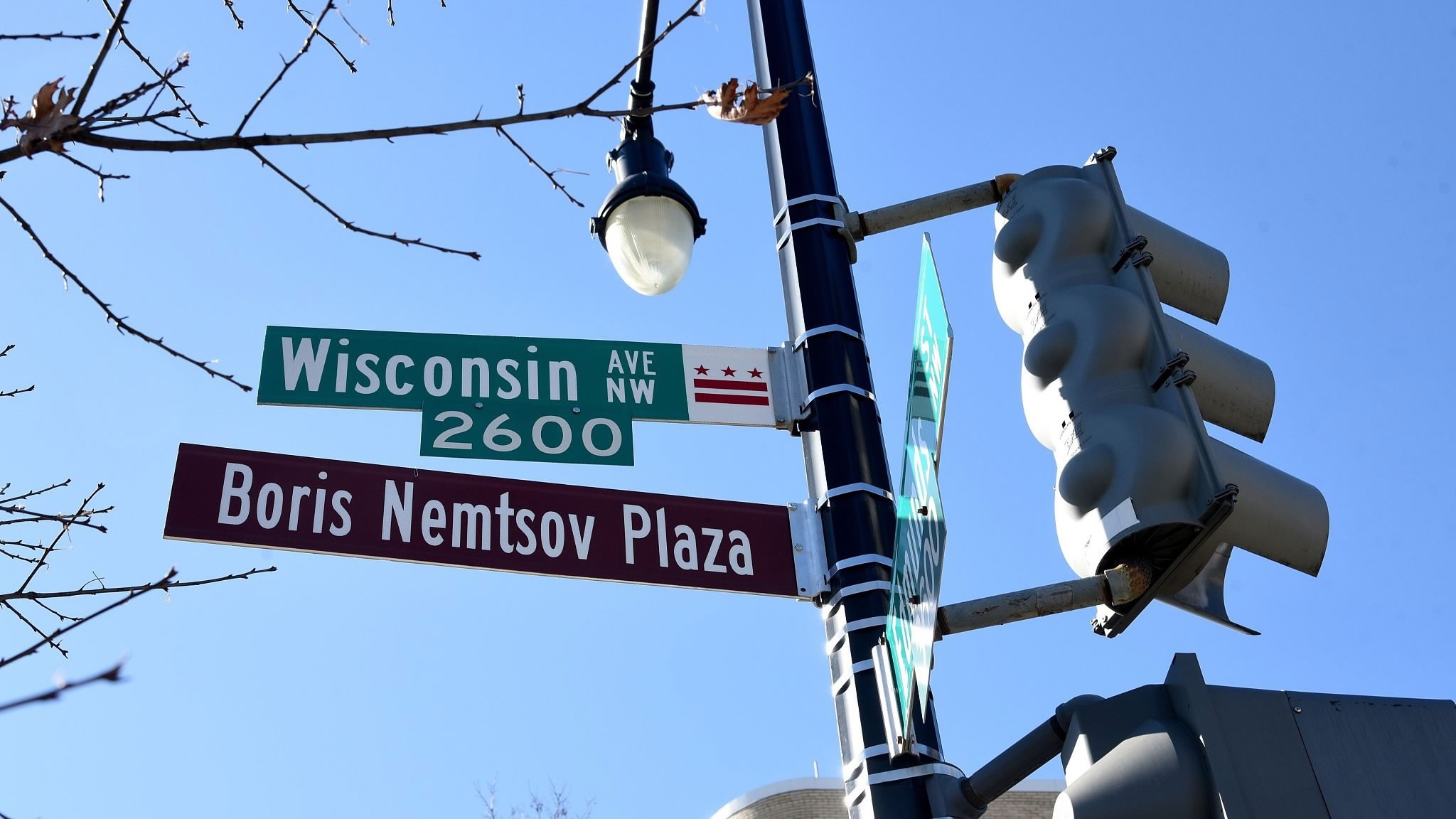A small square in front of the Russian embassy in Washington DC was officially renamed on Tuesday after a prominent murdered critic of President Vladimir Putin, in what commentators described as a US effort to troll Moscow.
A stretch of Wisconsin Avenue was unveiled as Boris Nemtsov Plaza, three years to the day after the Russian politician was assassinated on a Moscow bridge within a stone’s throw of the Kremlin.
The move to honor him came from family and supporters as well as US Democrats, but also comes at a time when President Donald Trump and his administration are under fire for alleged close links to Moscow and the FBI is conducting an investigation into possible Russian interference in the 2016 election.
Nemtsov was a deputy prime minister under Russian President Boris Yeltsin but later became an outspoken critic of Putin, who is now again seeking re-election.
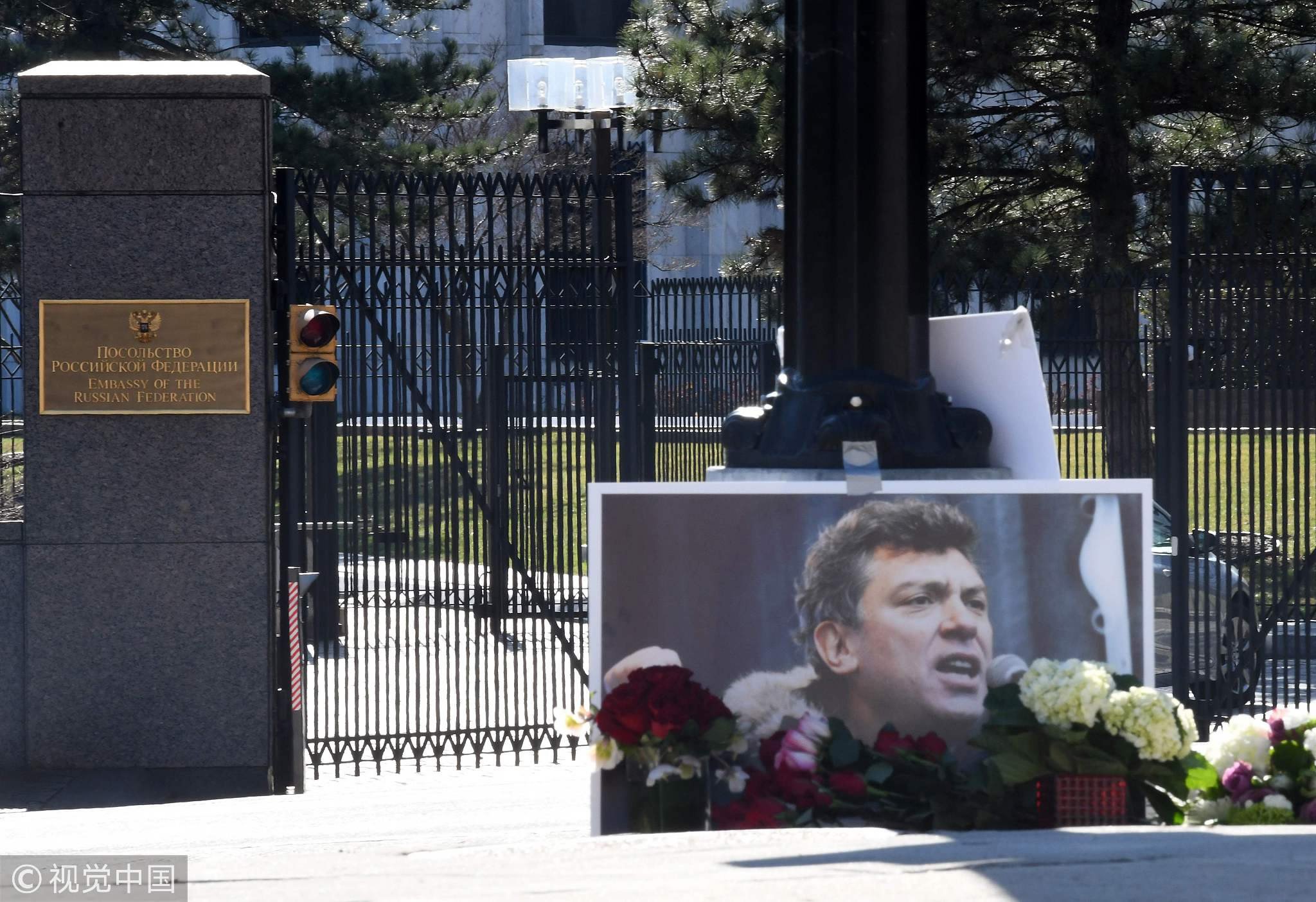
The Washington DC city council officially renamed a street in front of the Russian embassy in honor of a slain critic of Russian President Vladimir Putin in Washington DC, February 27, 2018. /VCG Photo
The Washington DC city council officially renamed a street in front of the Russian embassy in honor of a slain critic of Russian President Vladimir Putin in Washington DC, February 27, 2018. /VCG Photo
This is not the first time a country has renamed a square or street, or used a foreign embassy’s location in another way, to make a statement.
A change of address can be a simple way to needle adversaries on a daily basis, by putting them in front of a street sign or requiring them to use a detested name on their letterhead.
Here are a few other examples.
Sakharov Plaza, Washington DC
Speakers at Boris Nemtsov Plaza on Tuesday recalled that a similar name change occurred near the Soviet embassy in Washington DC at the height of the Cold War.
In 1984, the embassy suddenly found itself on Andrei Sakharov Plaza, after a well-known human rights activist and Nobel Peace Prize winner sent into internal exile.
"Every piece of mail the Soviets get will remind them that we want to know what has happened to the Sakharovs," Senator Alfonse M. D'Amato, who proposed the change, was quoted as saying at the time by the Washington Post.
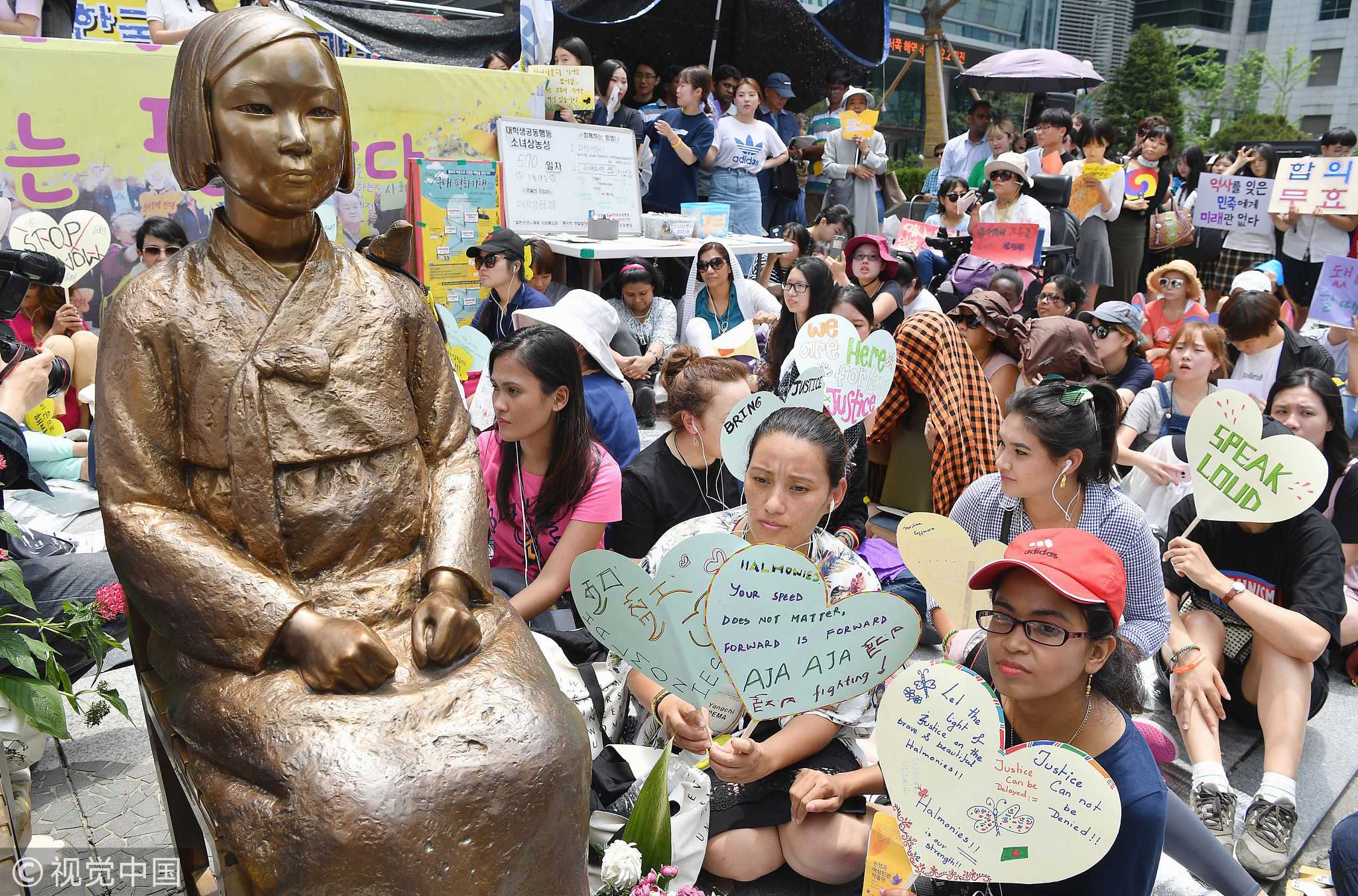
People gather for a rally next a statue of a 'comfort woman' in front of the Japanese Embassy in Seoul, July 19, 2017. /VCG Photo
People gather for a rally next a statue of a 'comfort woman' in front of the Japanese Embassy in Seoul, July 19, 2017. /VCG Photo
Comfort woman statue, Seoul
In 2011, campaigners installed a statue of a so-called “comfort woman” – the term used to describe women forced into sexual slavery by Japan’s military army during World War Two – outside the Japanese embassy in Seoul.
The statue drew quick condemnation from Tokyo and calls for it to be removed. But since then, similar statues have appeared in a dozen other locations, from the US to Germany and Australia.
The issue of comfort women – many of whom were from Korea, but also China, the Philippines and southeast Asian countries – continues to plague relations between Japan and South Korea, despite a 2015 deal that included an apology and financial support for the surviving victims.
Bobby Sands Street, Tehran
After the 1979 Iranian revolution and the overthrow of the Shah, the new rulers got busy changing the names of streets associated with the previous regime.
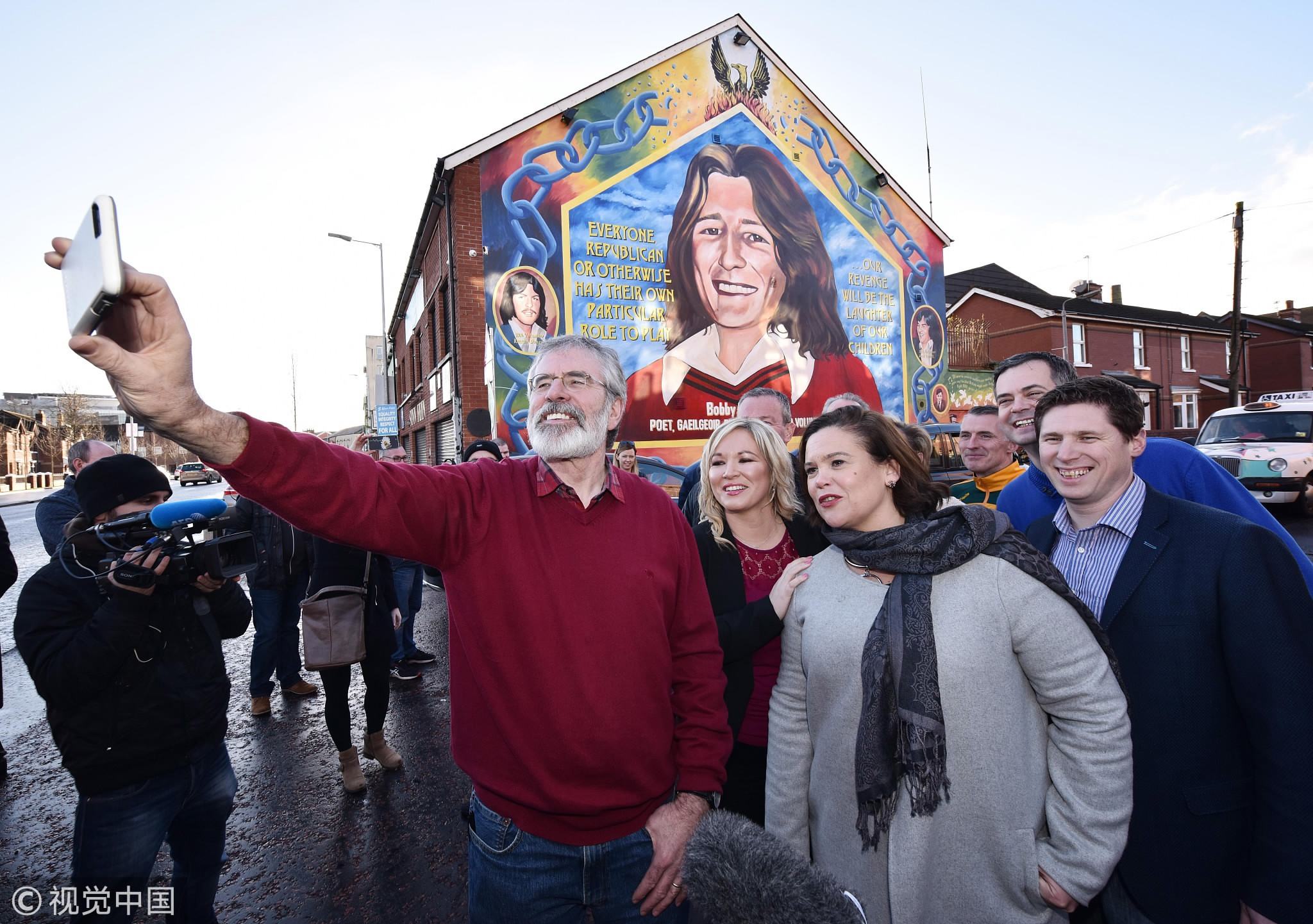
Sinn Fein President Gerry Adams (C) takes a selfie in front of the Bobby Sands mural on March 4, 2017 in Belfast, Northern Ireland. /VCG Photo
Sinn Fein President Gerry Adams (C) takes a selfie in front of the Bobby Sands mural on March 4, 2017 in Belfast, Northern Ireland. /VCG Photo
One of these was the street on which the British embassy stood, previously known as Winston Churchill Street.
In a clear dig at the UK, which had supported the Shah’s regime, the street dropped the name of Britain’s famous wartime leader in 1981 and took that of Bobby Sands, a Provisional IRA member who had died not long before after a hunger strike while in British custody.
The street, which still exists, was even given a local spelling as Babisandz Street.
The British embassy reportedly found a way around the problem however by sealing the entrance on that street and opening up another one so that its address could be Ferdowsi Avenue, named after a famed Persian poet.
Fahreddin Pasha Street, Ankara
In January, the UAE embassy in Ankara took the brunt of a UAE-Turkey spat, which began when UAE Foreign Minister Abdullah bin Zayed al Nahyan retweeted a post accusing a former Ottoman governor of Medina of crimes against the local population in the early 20th century.
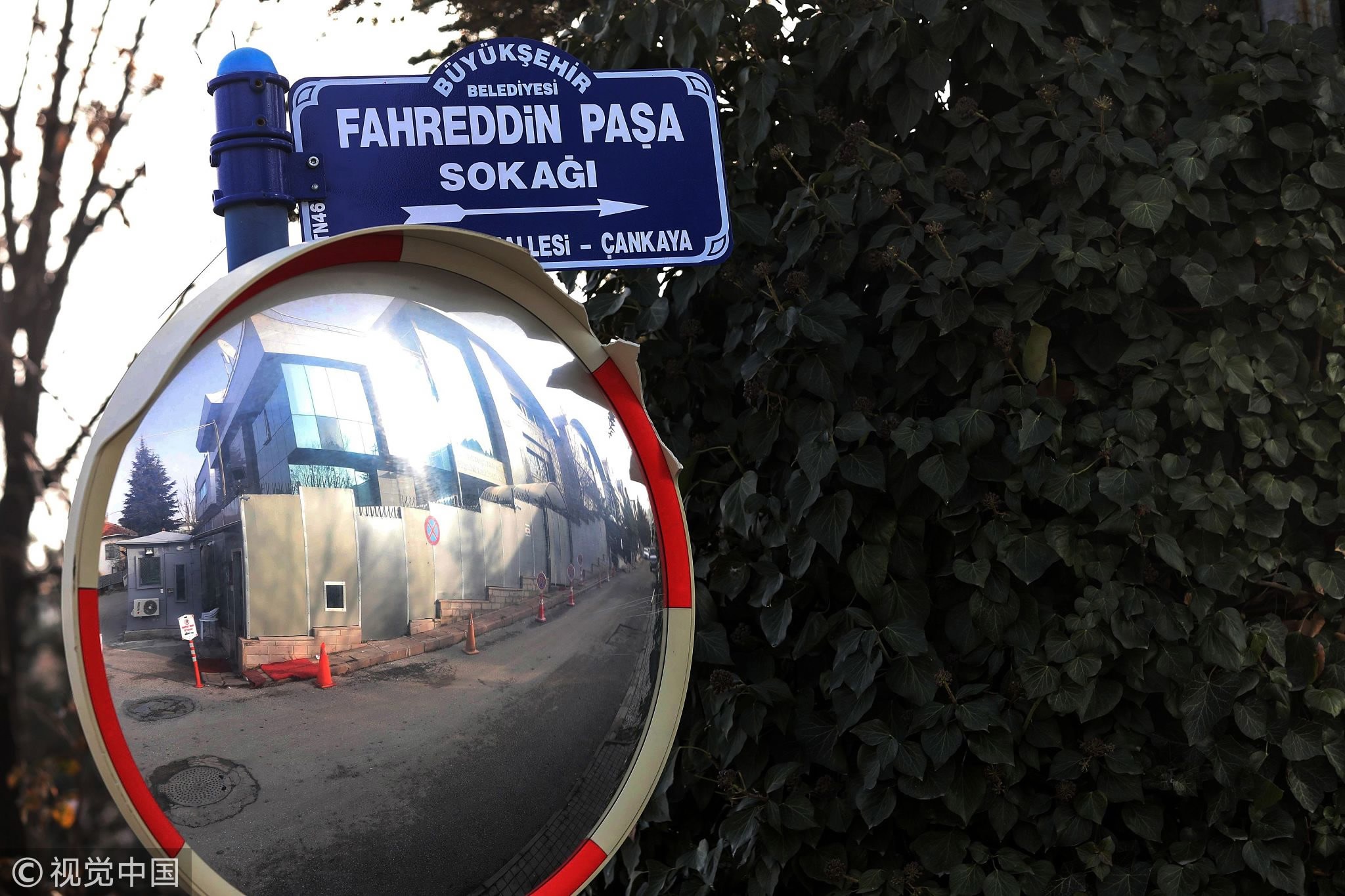
A new street sign bearing the name of the former Ottoman governor Fahreddin Pasha, marks the street that leads to the United Arab Emirates Embassy building in Ankara, January 9, 2018. /VCG Photo
A new street sign bearing the name of the former Ottoman governor Fahreddin Pasha, marks the street that leads to the United Arab Emirates Embassy building in Ankara, January 9, 2018. /VCG Photo
Ankara retaliated by renaming two streets near the UAE embassy in Ankara: one became Fahreddin Pasha Street, after the Ottoman governor in question, while the other is now Medine Mudafii (Defender of Medina) Avenue.
Liu Xiaobo and Snowden Street?
In 2016, US lawmakers debated a bill to rename the plaza in front of the Chinese embassy in Washington DC after Liu Xiaobo. Liu, who died last year, was convicted to 11 years in prison in China for activities aimed at overthrowing the government but was considered a human rights activist in the West. He was awarded the Nobel Peace Prize in 2010.
The potential renaming prompted swift condemnation from Beijing, which called on the US authorities to stop "this political farce".
Netizens and observers were also quick to suggest possible new names for the street in Beijing where the US embassy was located: from US whistleblowers Edward Snowden and Chelsea Manning, to Monica Lewinsky, the White House intern at the center of a sex scandal with former President Bill Clinton.
The proposal eventually died in the US Congress and the Chinese embassy remains at 3505 International Place.

